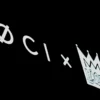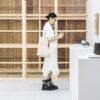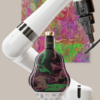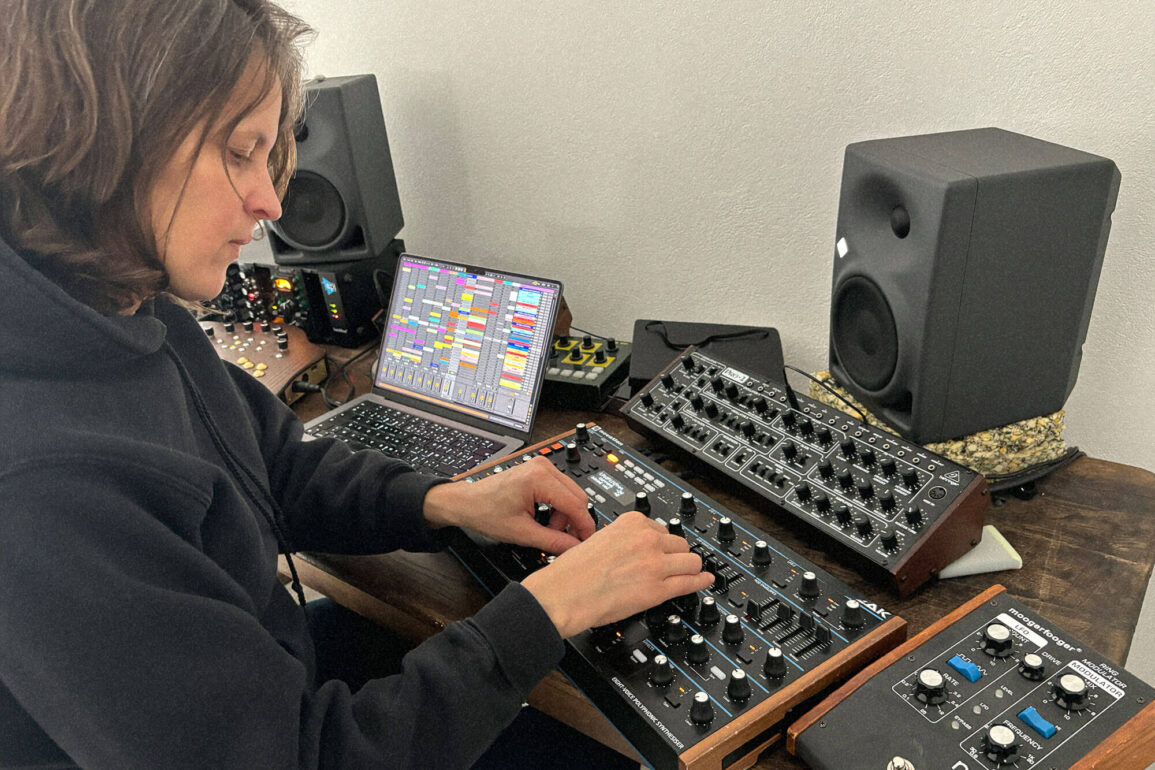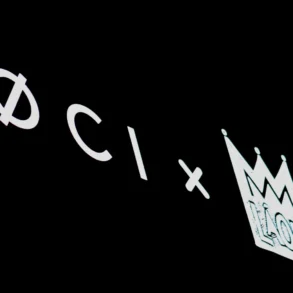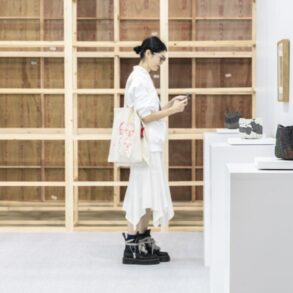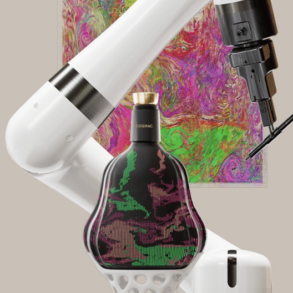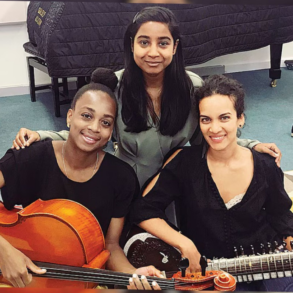Parisian DJ and producer, Chloe Thevenin, better known as CHLOÉ, knows how to fill a dance floor. With three albums, a handful of EPs and her record label, Lumière Noire, under her belt, her love of going to raves and clubs as a young adult has given her a powerful understanding of what audiences want, and how best to deliver a DJ set. As part of her residency, CHLOÉ creates immersive sets at the Rex Club in Paris that lead crowds from night to day, taking audiences on “unexpected journeys”.
She also creates soundtracks for the arts, from soundtracking the French documentary La Montagne to composing for Noémie Goudal at the TATE Modern, pushing her talents for storytelling to the forefront. CHLOÉ even performed her music live at the closing ceremony of the 2024 Paralympic Games in Paris.
In this week’s Studio Files, CHLOÉ breaks down her live setup and the gear she can’t create without. She also shares her biggest lesson as an artist, which came from a revered philosopher, and how that grounds her through everyday life.
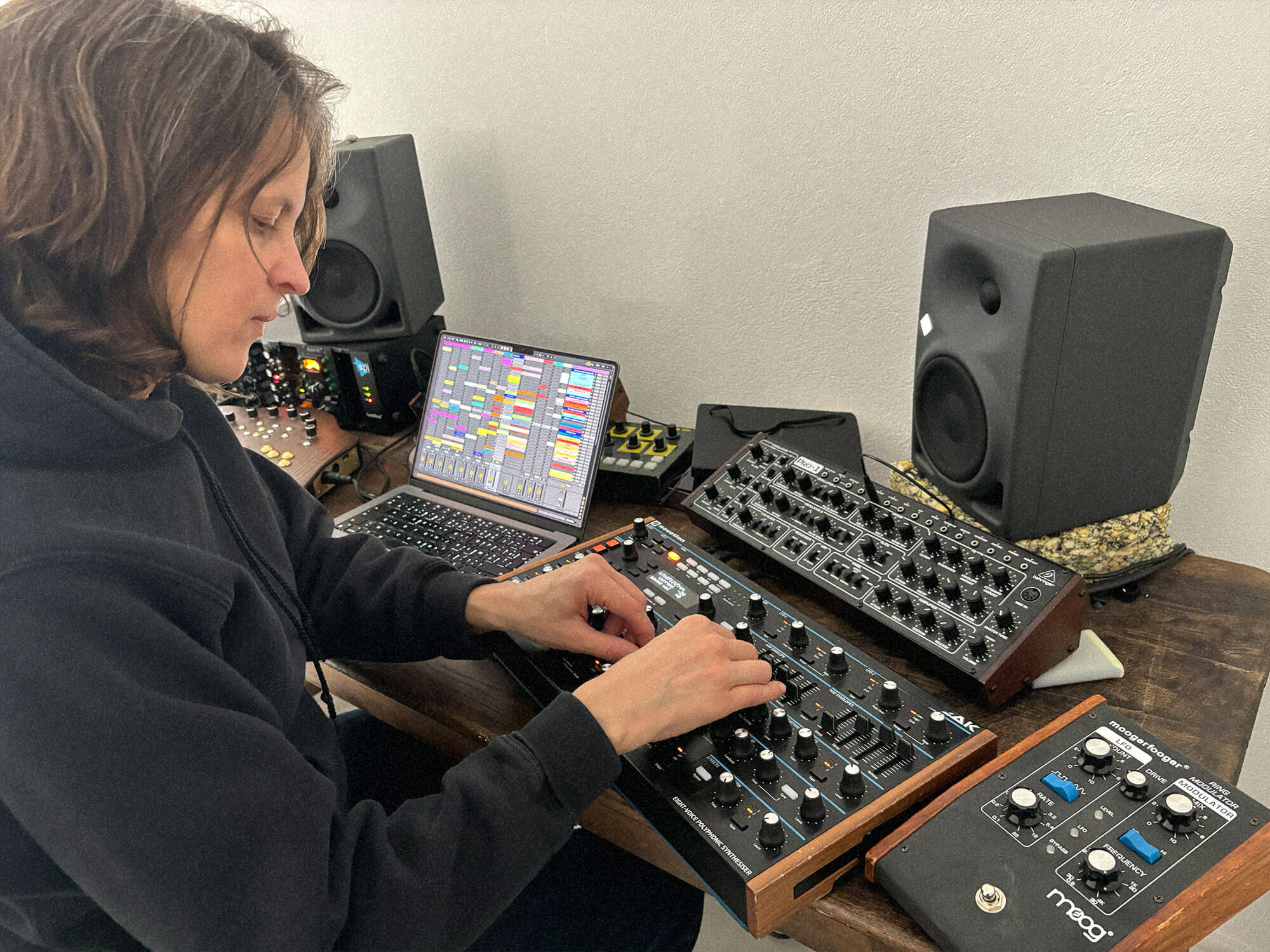
Congratulations on the release of your EP Intronics! How did you approach developing your ideas for this record?
I’m always recording little ideas in the studio or on the road, on trains, planes – really just wherever I’m going. I then build the beats and start experimenting with synth ideas using different effect routings, and creating random sounds. Once I’m ready to put it all together I start to play around with all the different elements I’ve recorded, going through my folders where I store all of those little ideas, and this process really helps me develop and grow the production of my tracks.
You’ve just pulled off another All Night Long event at Paris’ legendary Rex Club. How do all-night sets change your relationship with an audience compared to sets ending after midnight?
I normally play two-hour sets, but playing an all-night-long set is a much more special experience that allows me to give the evening a unique tone. There’s more space to experiment moving through more house-inspired moments, sometimes darker disco vibes, and then shifting to minimal and electro. There’s a unique energy that comes with playing for a longer duration, especially in a place like the Rex Club, where the atmosphere is electric, and the sound system is really amazing.
I have the time to really create something immersive that can allow a strong connection to form with the audience. It feels like we’re all embarking on a trip.
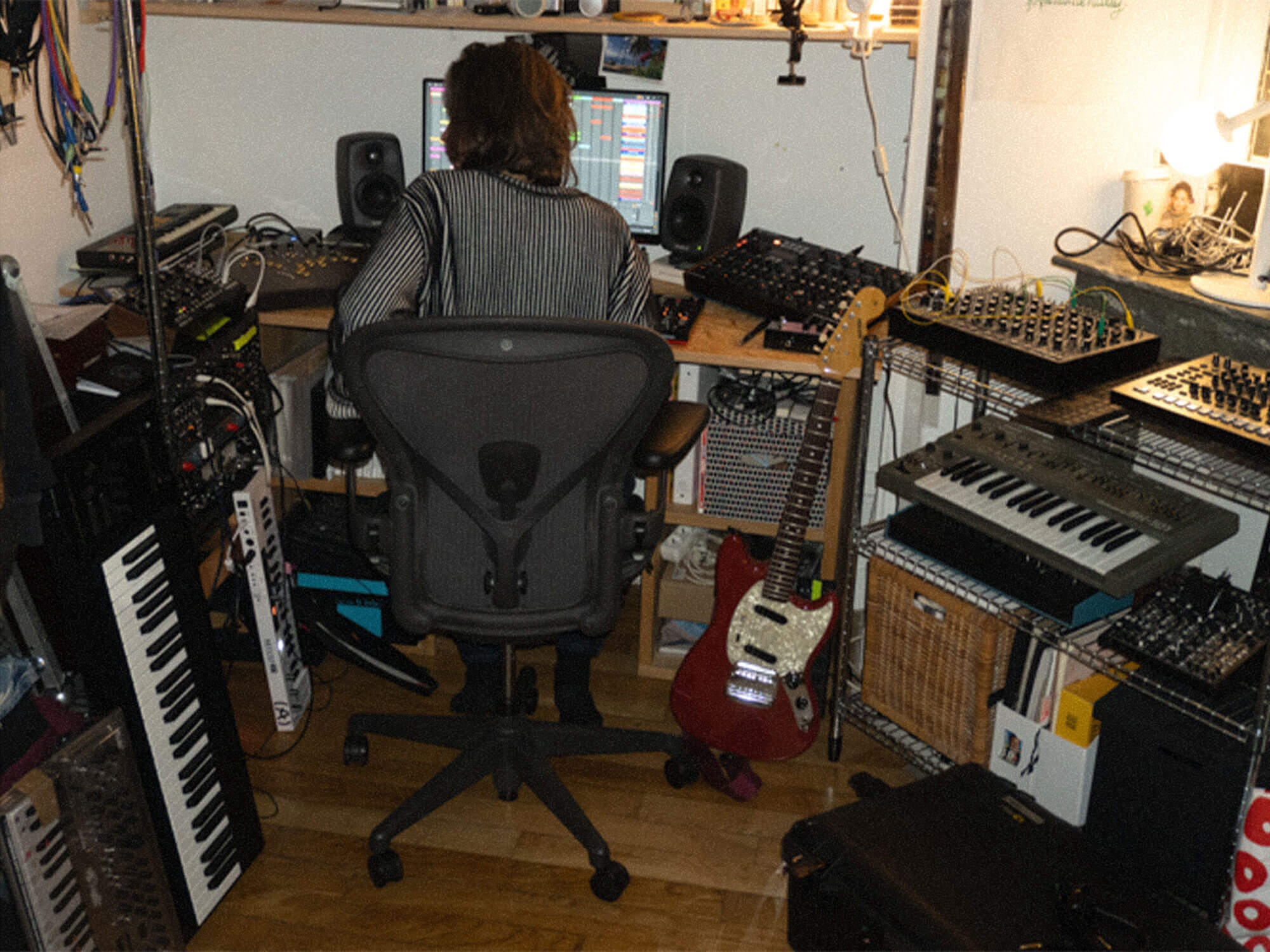
Tell us more about your studio.
Until recently, my studio was a 20m² basement in Paris, which was spacious enough to collaborate with instrumentalists and other producers, but I recently gave it up because, honestly, I couldn’t stand being without natural light anymore. For now, I’m in a downsized studio home, but the plan is to have a studio with natural light and proper acoustic treatment in a few months.
Part of my studio is set up in a structured way, but there’s room for creating a more live-oriented setup. This balance allows me to maintain the energy in my workflow, so that I can constantly experiment with new routings to keep it fun and creative.
My studio is a mix of vintage analogue gear, including the Roland SH-101, the VP-330 Vocoder, and some drum machines like the Soma’s Pulsar, alongside more modern synths like the Novation Peak. I also have a bunch of effects pedals that I love using to re-amp, such as the OTO BAM which is a stereo reverb processor inspired by the late 70s and early 80s. I like to set up a more live-oriented configuration, play around with it, record everything in Ableton Live, and keep that spontaneous feel before refining the recordings later.
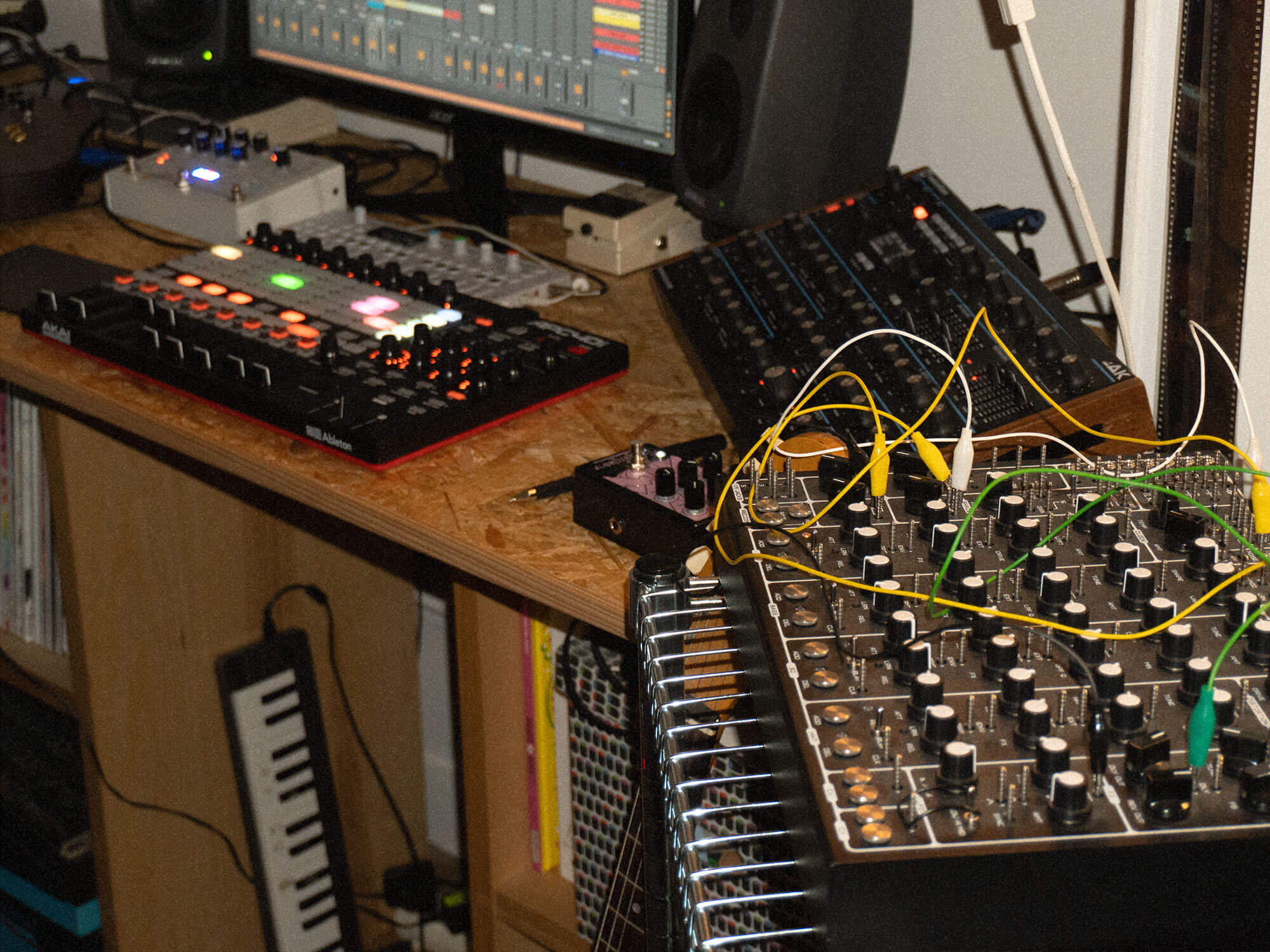
What’s your latest gear or plugin purchase?
Lately, I’ve been really enjoying elements that support MPE (MIDI Polyphonic Expression) — it helps keep things organic and strikes the perfect balance between simplicity and versatility. I have enjoyed the TERRA from Soma, which is a fully digital synthesizer, offering a sound palette that goes from beautiful classical tones to complex atonal noise. The keyboard features 12 note sensors with velocity and pressure sensitivity, allowing for expressive, nuanced performances.
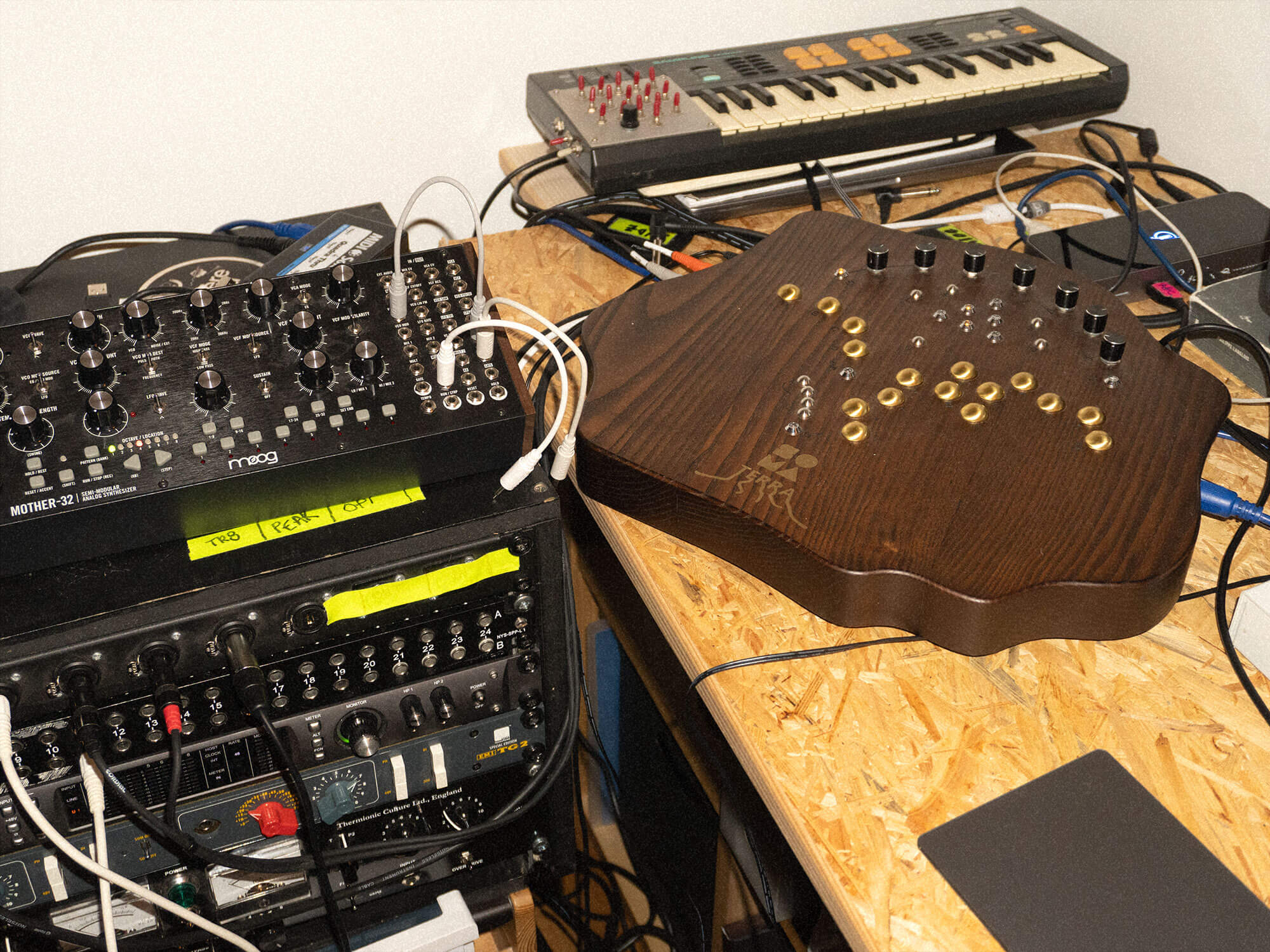
What’s the best free plugin you own?
I dig the Valhalla Super Massive. It’s a reverb and delay plugin that creates spacious sounds. It can also add depth to the mix of a track.
What’s been the biggest investment in your career/studio?
When I started, I made a lot of mistakes that cost me a lot of time and precision. I realised lately that a recording can sound amazing if we run the machines through good preamps or use a great mic, as it immediately gives the sound a sense of space, which helps avoid a lot of EQ adjustments later on. I have some small API modules that let me run things through them, like the Color Palette.
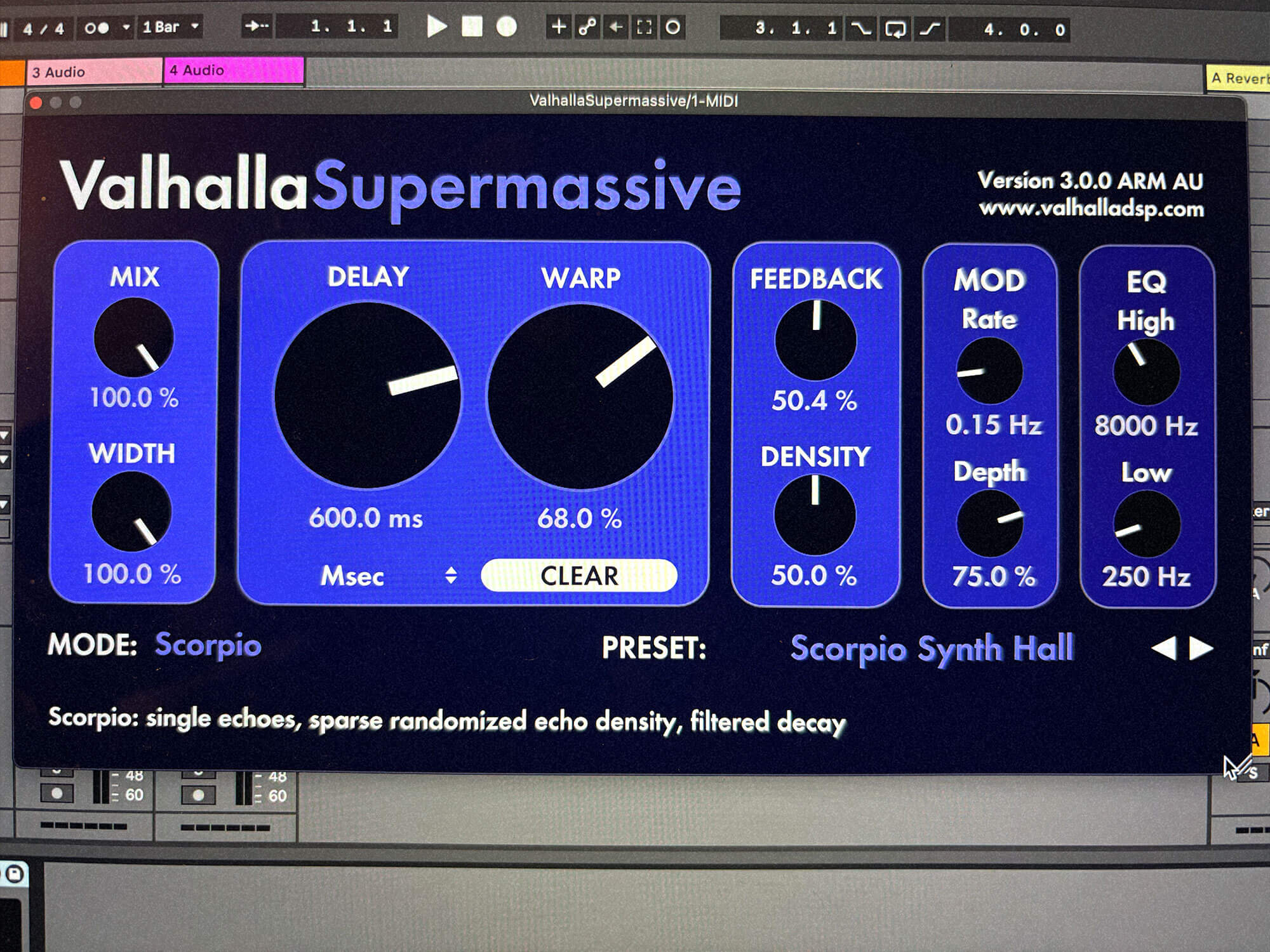
Tell us about your work in soundtracking. How do you keep your own sonic identity when creating music for other people’s projects?
Working collaboratively on a soundtrack for a film is a matter of responding to a commission and collaborating with an artist who already has a point of view. The music helps achieve a very specific idea, with specific editing and score — it’s the culmination of months of work and exchange. The key is balancing the vision of the project with my own sonic identity. I always start by immersing myself in the narrative concept, trying to get closer to understanding the emotion and atmosphere needed.
How do you see your sound and studio evolving in the next two years?
As technology continues to evolve, I want to explore new tools and production techniques such as new plug-ins and gear, but also just get deeper with gear I already own. It’s surprising to see how you can keep discovering stuff with what you already own.
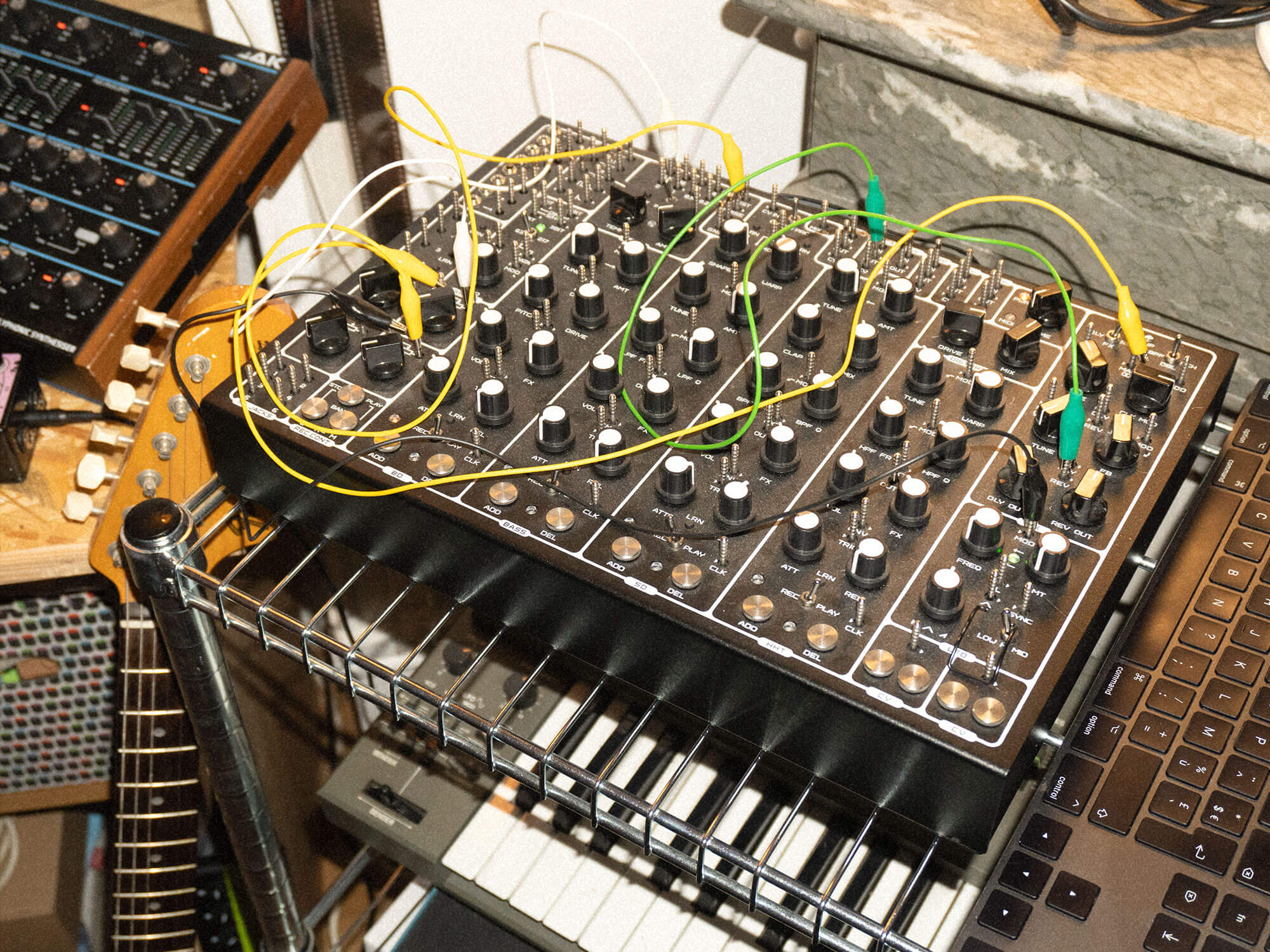
Do you have a dream piece of gear?
I really have my eye on a virtual synth from Arturia: the CMI V. It’s a recreation of the legendary Fairlight CMI, one of the first digital sampling synthesizers which was very popular in the 80s. It’s a hybrid of vintage charm and contemporary capabilities!
What’s a music production myth you think needs debunking?
The idea that you need expensive gear to make great music. It’s all about how you use the tools you own, not how much you spend on them. You don’t need the most expensive equipment to produce professional tracks. What’s most important is your creativity and skill, so you should take the time to understand the tools you already own. Some of the best music I’ve made was at home on my laptop with minimal gear, and many great producers use inexpensive or even free software.
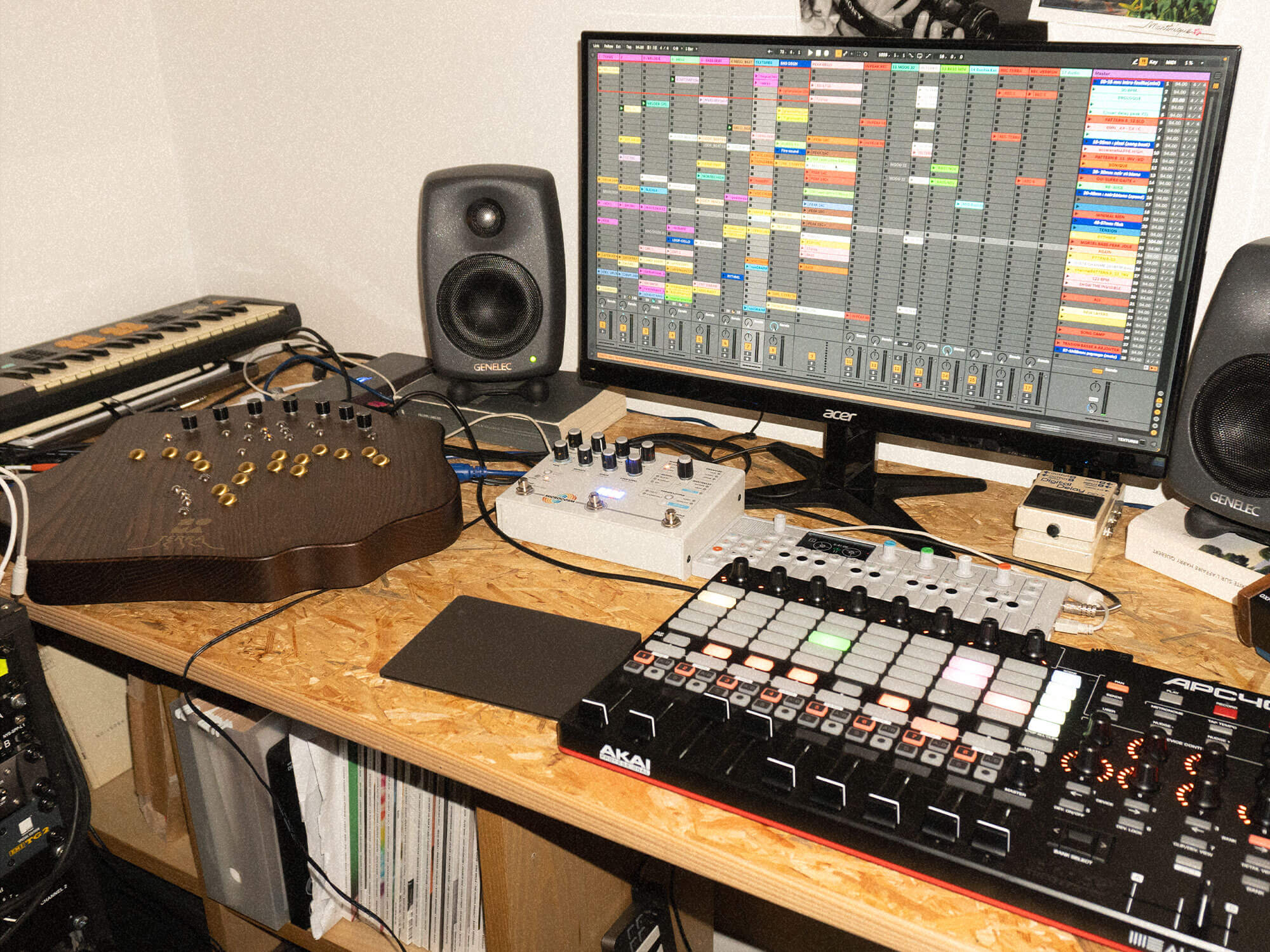
Who gave you the biggest lesson in your career? Can you tell us about how it impacted you?
The biggest lesson I’ve learned in my career comes from the philosopher Socrates. It’s the phrase: ”I know that I know nothing”. It reminds me to keep learning and remain humble.
Every piece of gear, every collaboration, and every mistake is an opportunity to discover something new and unexpected. It’s a lesson that grounds me, not just in music but in my everyday life.
Read more music producer interviews.

